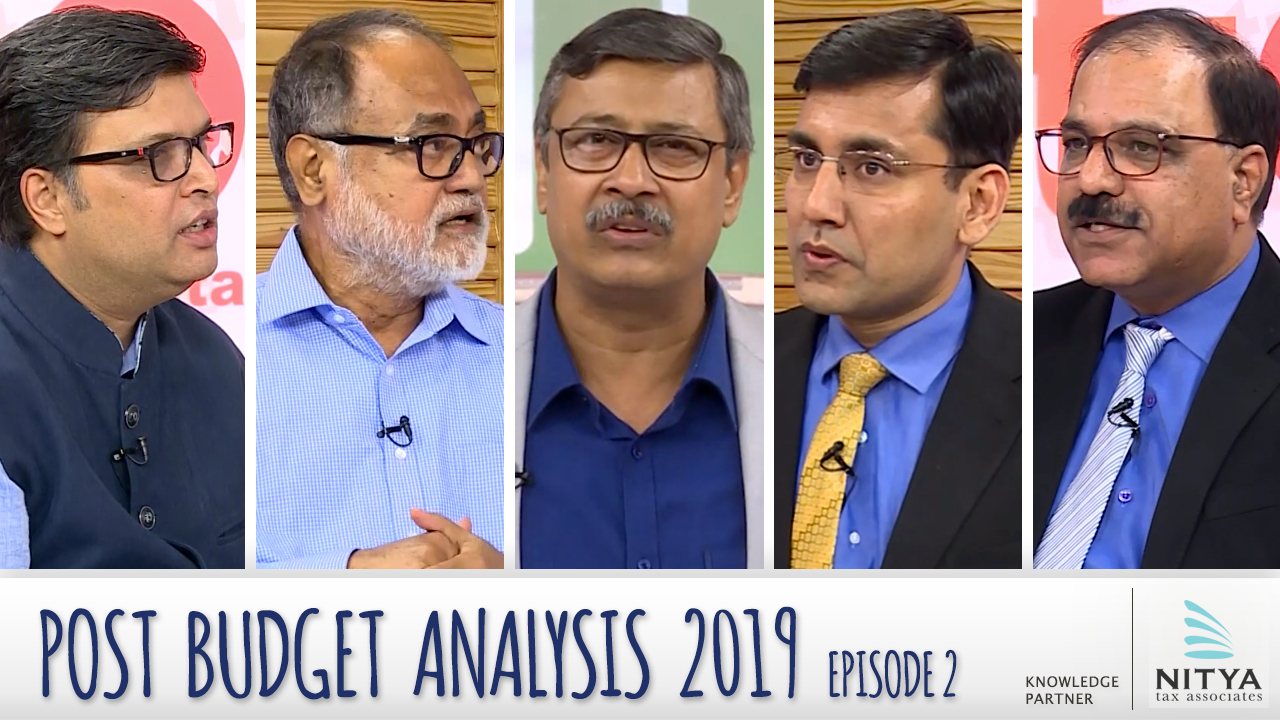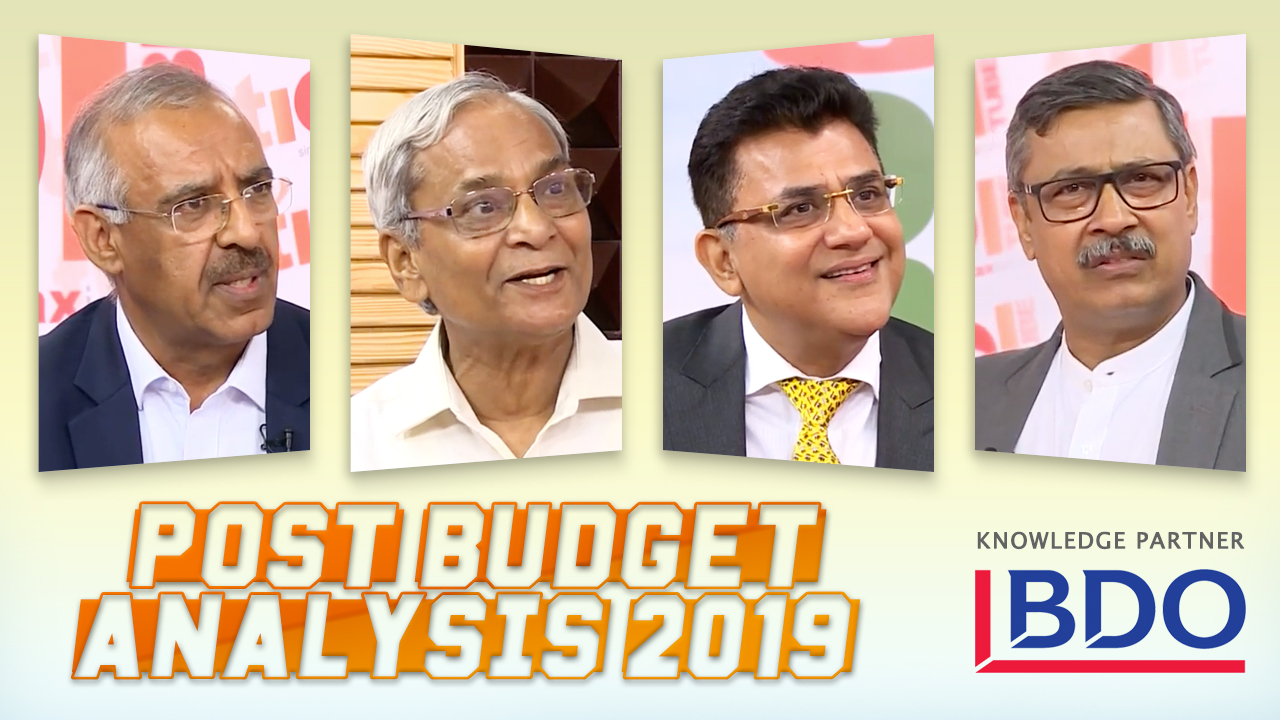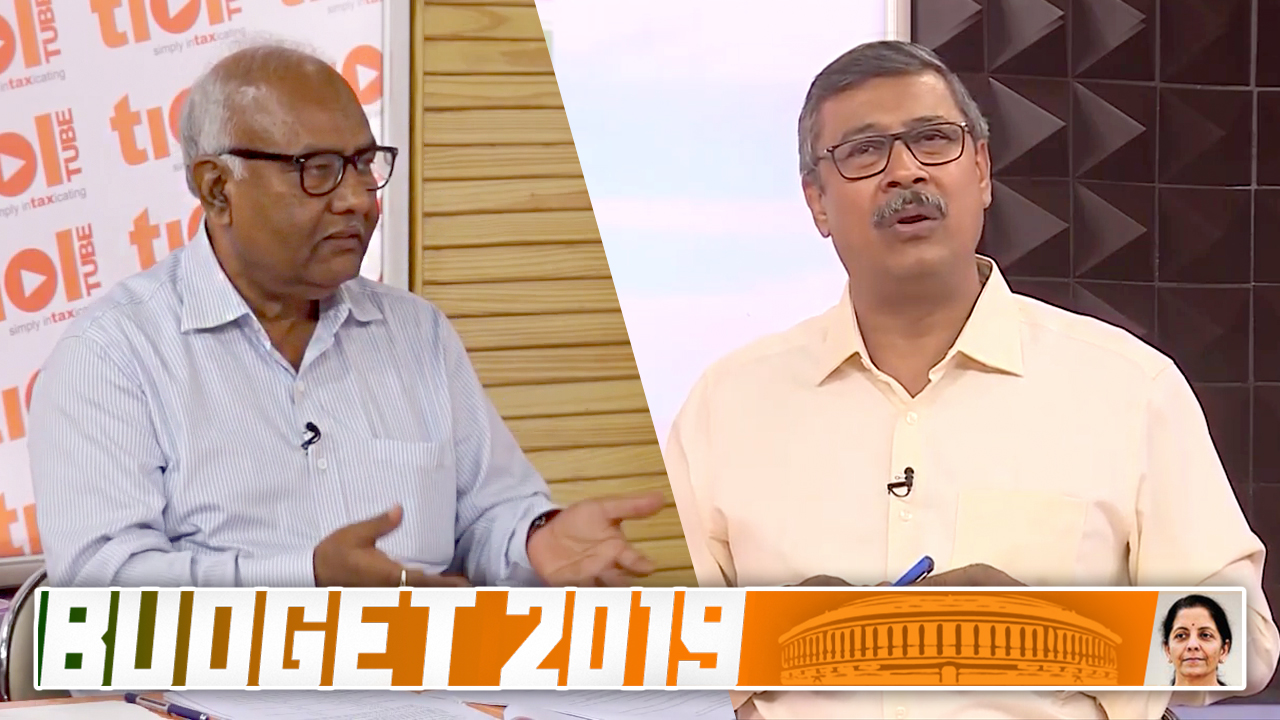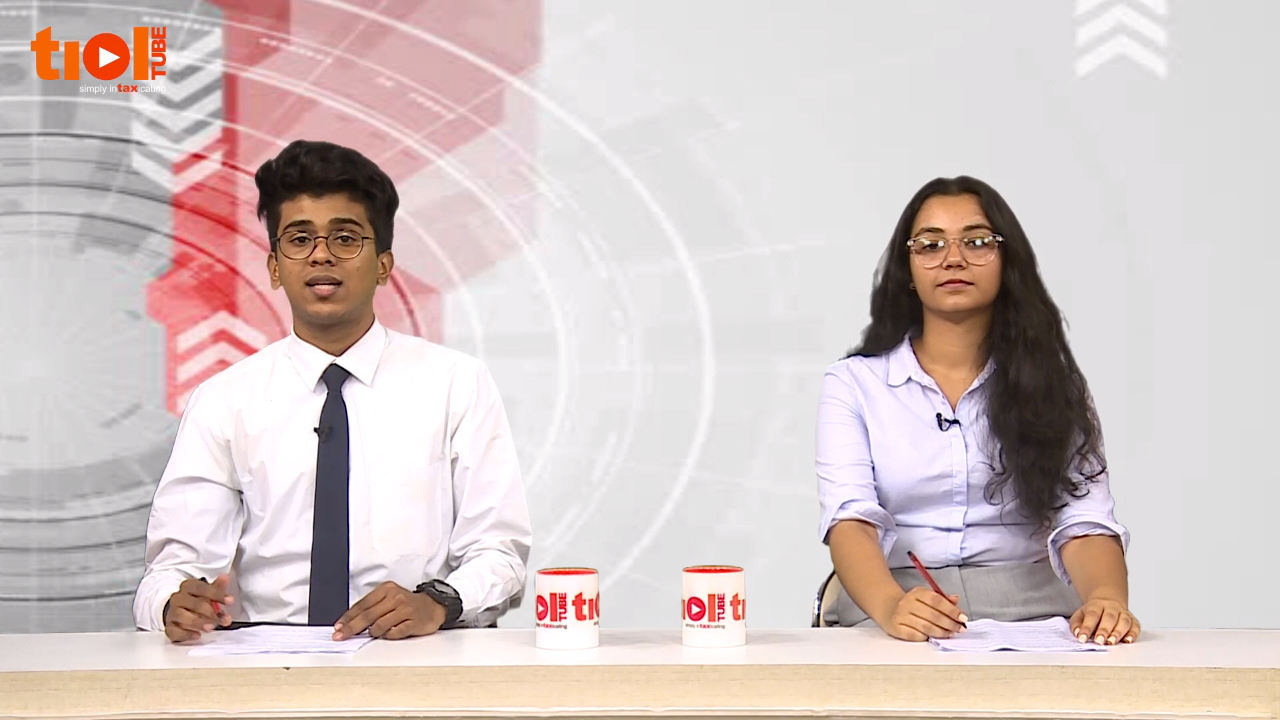|
SERVICE TAX
2019-TIOL-2021-CESTAT-MUM
Swami Communication Vs Commissioner of CGST
ST - Assessee had provided BAS to M/s TTML by selling its SIM cards allegedly on commission basis - During scrutiny of M/s TTML records, it was found that assessee had charged certain amount of Service Tax from M/s TTML but not deposited the same with the Government whereas M/s TTML availed CENVAT credit on those Service Tax amount so paid to the assessee - It was put to SCN and duty demand under Section 73(1) was made by notice which was corrected as Section 73(1A) of the Finance Act, 1994 through a corrigendum issued on 17.04.2012 - In respect of reference to non-existence of Section 73(1A) as referred in corrigendum notice, it cannot be said that the ingredient of allegations made in SCN has not made out a case under Section 73(1) - It is a settled principle of law that wrong mentioning of appropriate charging sections or provisions will not vitiate the proceedings, if ingredients of provision is well made out in the charge - Therefore issue of such a corrigendum was uncalled for and duty demand is sustainable under Section 73(1) alone - In respect of assessee's second submission, as found from the appeal record, not a single request was made by assessee for such cross examination of the witness or testing the veracity of such statement of the witness - Further reference can also be made to the assessee's contention regarding small scale exemption - No such notification had ever allowed a tax to be collected on behalf of Government and not credited to the treasury - In view of the fact that assessee had collected the Service Tax which is established through his signature made on commission statement obtained by M/s TTML which remains unchallenged, it cannot discharge its tax liability just by making bald statement that such signature was obtained on nil tax documents - However, having record to the fact that Commissioner had not dealt with the penalty aspect as well as extended period, and department has not appealed against it, finding on penalty is not given here, though a clear case of extended period is well made out, in view of the suppression by assessee in collecting the Service Tax from the service receiver and not crediting the same to Government treasury - Assessee is liable to pay Service Tax collected by it from M/s TTML towards services provided under BAS along with applicable interest within a period of three months: CESTAT
-Appeal dismissed : MUMBAI CESTAT
2019-TIOL-2020-CESTAT-AHM
Sports Club Of Gujarat Ltd Vs CST
ST - Whether the assessee is liable to pay service tax on health club and fitness centre service provided by assessee - The issue that whether as per doctrine of mutuality the assessee is not liable to pay service tax pending before the Larger Bench of Supreme Court in case Ranchi Club Ltd - Accordingly, no purpose will be served to keep this appeal pending before this Tribunal - Hence, the appeal is allowed by way of remand: CESTAT
- Matter remanded : AHMEDABAD CESTAT
2019-TIOL-2019-CESTAT-BANG
Way 2 Wealth Brokers Pvt Ltd Vs CST
ST - The assessee is registered for providing services under Stock Broker services and Banking and Other Financial services - During the relevant period, the assessee rendered services in relation to IPO to its customers - The Revenue issued two SCNs proposing duty demand on brokerage received by them on IPO related-service u/s 65(19)(i) of the Finance Act 1994 - The adjudicating authority dropped these proposals on grounds that the assessee is not covered under these headings as shares became goods only if alloted - Such proceedings were reviewed by the Commissioner of Service Tax, who issued fresh SCNs confirming the demands on grounds that the assessee's activities were taxable u/s 65(19)(ii) of the Act - Hence the present appeal by the assessee.
Held: BAS - The assessee's activities are not covered under this definition as it is not promoting or marketing or selling any goods - It is only an initial offer and until the rights are issued to the subscribers such as share certificate do not assume the character of goods - The assessee's activities would be taxable only if the service is rendered in relation to promotion or marketing of service rendered by the clients - IPO is only an offer to the prospective buyers and therefore, it cannot be held to be a service by the company offering IPO - Hence the assessee is not covered u/s 65(19) of the Act - The demands raised must be quashed on merits & also on grounds that the Revisionary Authority travelled beyond the scope of the grounds raised in the first SCN: CESTAT
- Assessee's appeals allowed : BANGALORE CESTAT
CENTRAL EXCISE
2019-TIOL-2018-CESTAT-KOL
Skill Dye Chem Pvt Ltd Vs CCE
CX - The assessee is engaged in manufacture of Acid Slury - SCN was issued alleging that during the period from 05.09.2010 to 11.10.2010, the assessee contravened the provisions of Rules 4 & 8 of CER, 2002 - The assessee was required to pay Central Excise duty along with Higher Education Cess and Secondary Education Cess - The assessee debited Rs.18,94,212/- on 31.07.2010 from their Cenvat Account - But there was a short fall in payment of Higher Education Cess and Secondary Education Cess - Further, it was found that there was neither any credit balance of Higher Education Cess and Secondary Education Cess in their Cenvat Account nor in their PLA Account on 31.07.2010 and thereby, they defaulted in payment of Rs.30,280/- & Rs.15,122/- - The defaulted amount was paid and the interest was paid on 11.10.2010 - This resulted in default in payment of Central Excise duty - Revenue was of the view that during the period of default, assessee was required to make payment of Central Excise duty on consignment to consignment basis under Rule 8 (3A) without utilizing cenvat credit, which has not been complied with - The Jurisdictional High Court at Calcutta, in the case of Goyal MG Gases Pvt. Ltd has followed the decision of Gujarat High Court in Indsur global Ltd. - 2014-TIOL-2115-HC-AHM-CX and has held the portion of rule 8 (3A) as ultra vires - By respectfully following the decision of Jurisdictional High Court, there is no bar in making use of accumulated Cenvat Credit in making payment of Central Excise Duty even during the default period - In the result, the impugned order is set aside: CESTAT
- Appeal allowed : KOLKATA CESTAT
2019-TIOL-2017-CESTAT-HYD
Universal Biofuels Pvt Ltd Vs CCE, C & ST
CX - The only point of dispute is whether the assessee is entitled to input CENVAT Credit during the period November 2008 to August 2009 on the paints used by them to maintain their storage - The only reason the department sought to deny CENVAT Credit on the paints in question was that they are used in maintenance of storage tank and therefore cannot be considered as inputs, in terms of CBEC instruction dated 08.07.2010 - This instruction was issued in the light of judgment of Larger Bench of CESTAT in the case of Vandana Global Limited - 2010-TIOL-624-CESTAT-DEL-LB which itself has subsequently been set aside by High Court of Chattisgarh - A plain reading of definition of 'input' in Rule 2(k) shows that paints are specifically included in the definition - Accordingly, assessee is entitled to CENVAT Credit on the paints used: CESTAT
- Appeal allowed : HYDERABAD CESTAT
2019-TIOL-2016-CESTAT-AHM
USV Ltd Vs CCE & ST
CX - The assessee is engaged in supply of medicaments to institutional buyers like Railways, BHEL, NTPC and BARC - While assessee was paying excise duty on assessable value arrived at in terms of Section 4A of CEA, 1944 in respect of clearances to the market, they were adopting assessable value in terms of Section 4 of Central Excise Act in respect of clearance made to institutional buyers - Revenue under the belief that the supplies to the institutional buyers should also be valued in terms of section 4A of CEA, 1944 issued SCN demanding duty - Notices also sought to impose penalties on three persons namely, Parvej K Kumana, Dilip A Pandit and Jayesh K Vasavada - It is seen that investigations were extended to various customers/dealers and in impugned order the list of customers has been enumerated - The gist of investigation is reproduced in impugned order - The investigations confirmed that no evidence of printing of MRP on institutional supplies made through dealers was found - In fact whatever evidence was produced showed that the products contained the marking "hospital supply-not for sale" only - The impugned order has picked up the words "formulation intend for sale" appearing in the Drugs (Price Control) Order 1995 and come to the conclusion that it was mandatory to print the MRP - The argument in impugned order being that the goods intended for ultimate sale to institutional buyers, are first sold to dealer/distributors - Thus, when they are sold to dealers/distributors the provision of DPCO 1995 get attracted - It is seen that the DPCO 1995 mandates, printing of 'retail sale price' on 'containers' as well as on 'minimum pack thereof offered for retail sale' - It is apparent that what is covered in DPCO is only the items which are sold in retail - If a container is sold in retail, the container must contain retail sale price and if the content of such container are also sold in retail then each such pack sold in retail must have the MRP printed on it - It is apparent that the provisions are attracted only on goods 'offered for retail sale' - In the impugned order, it is seen that the words 'offered for retail sale' appearing in DPCO 1995 have been overlooked - The said order only relies on the word 'sale' and upholds the applicability of DPCO 1995 to all sales - The evidence brought on record does not dispute the claim that the goods sold to institutional buyers were not sold (or offered for sale) in retail sale - Provisions of of DPCO 1995 are not attracted in respect of sales to institutional buyers which are not further offered for retail sale - The demand, therefore, cannot be upheld - The penalties imposed are set aside: CESTAT
- Assessee's appeal allowed : AHMEDABAD CESTAT
CUSTOMS
2019-TIOL-2015-CESTAT-MUM
Kailash Bahiru Jadhav Vs CC
Cus - The proceedings emerged from alleged overvaluation of export goods with intention to avail excess drawback - The claim of assessee is that they had nothing to do with exporter and that there was no evidence of any involvement in abetment of fraud - The CHALR, 2004 which is a comprehensive self-contained scheme for licensing, operations, monitoring and regulation, is a standalone provision - Indeed it is a special provision in Customs Act, 1962 by which, a whole range of activities in connection with which proceedings may be initiated for breach thereof - Implicitly, every agent who has a licence has to be connected with import or export of goods and if an agent could be proceeded against under section 114 of Customs Act, 1962 merely because of being an agent, it would necessarily follow that every agent must be made a noticee in all proceeding under section 111 and 113 of Customs Act, 1962 which does not appear to be the intent of legislation - It is seen from the impugned order that it is the role of assessee as a 'custom house' agent that was found sufficient to invoke the penal provision - As separate provisions exist in CHALR, 2004, the invoking of such for violations for imposing of penalty under section 114 of Customs Act, 1962 is patently incorrect - The impugned order is set aside: CESTAT
- Appeal allowed : MUMBAI CESTAT
2019-TIOL-2014-CESTAT-MUM
Calison Fibres Pvt Ltd Vs CC
Cus - In the regime of self-assessment, reassessment by an assessing officer requires issue of order of justification which may be challenged in appeal - However, duty paid in excess of that prescribed by law cannot be retained by exchequer and eligibility to the benefit of notfn 21/2002- Cus is not in question - It would appear that the letter dated 9th September 2011 sought for recall of the bills of entry to make necessary emendations therein to restrict liability to duties as imposed by law - Though reassessment prescribed for in section 17 of Customs Act, 1962 is not an option to be invoked by importer, the erroneous deployment of that in said letter does not preclude the application of any other relevant provision in the statute - The request for re-assessment be treated as application under section 149 of Customs Act, 1962 for amendment of bills of entry - The proper officer may therefore consider this application and pass appropriate order in accordance with law: CESTAT
- Appeal disposed of : MUMBAI CESTAT |








